Out of the Attic: The Ballykinlar Book
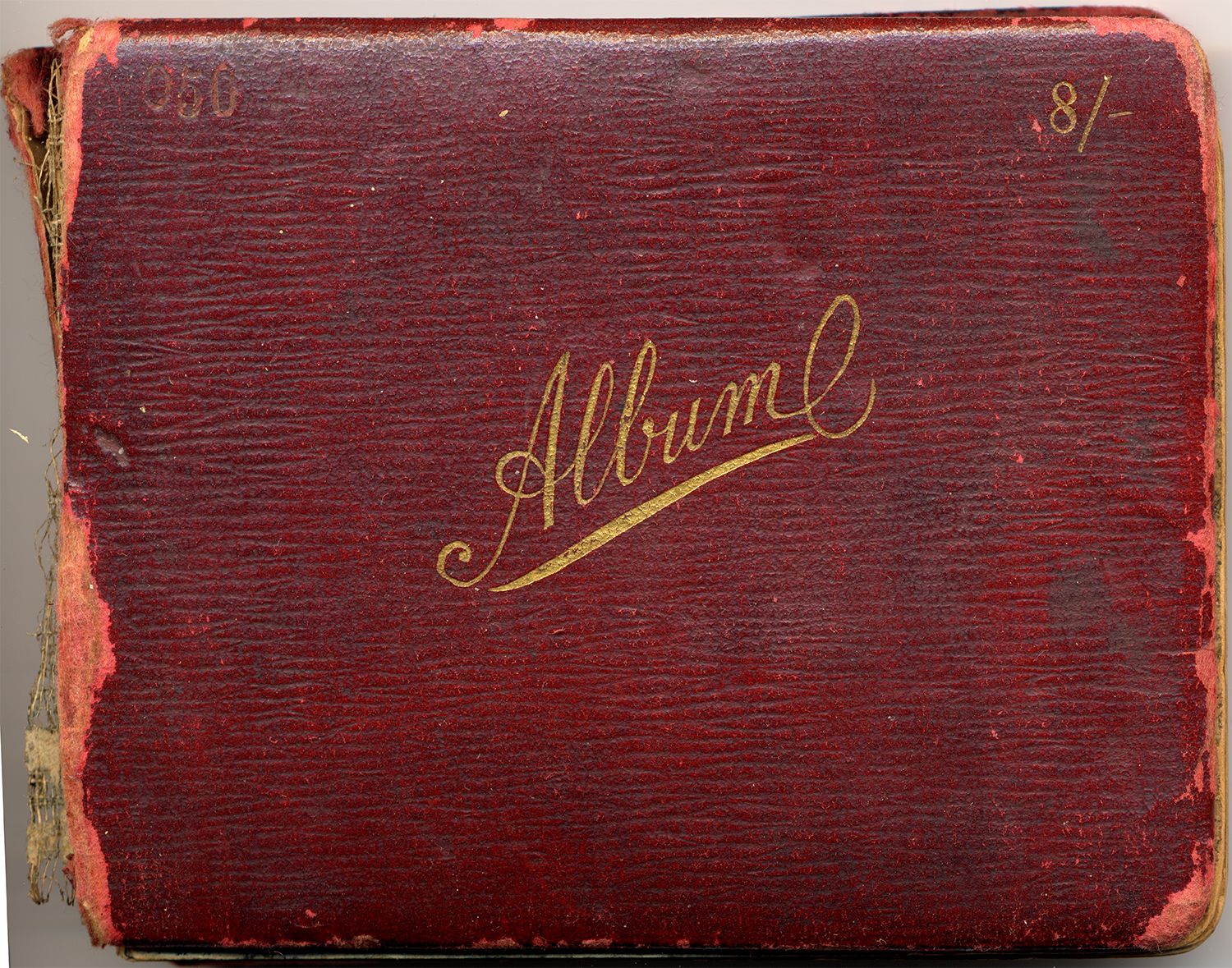
An Autograph Album from Ballykinlar Prison, 1921
by Patricia Carr Biczynski
Joe and Sheila, his new bride from Texas, were in Dublin City in the mid-1930’s when a passerby tipped his hat to Joe, who returned the gesture. “Who was that?” Sheila asked. “Oh, I was in jail with him,” he replied. The shock lessened for Sheila each time it happened.
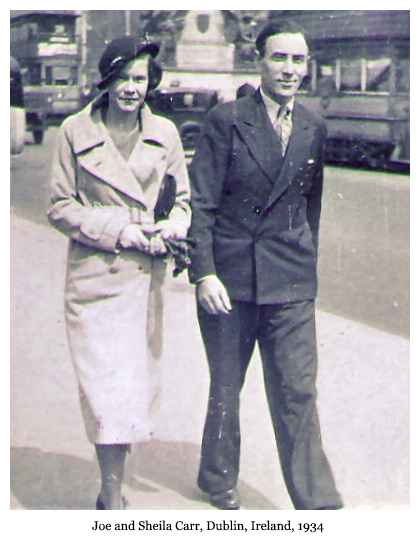
I was the child who sat at Joe’s feet and listened. In the most ancient of Irish customs – that of storytelling – he told me of the Irish struggle for independence, of organizing London’s Irish dockworkers, of running guns to the rebels, of Scotland Yard raids on his home, and of imprisonment by the British. But I never heard about the Ballykinlar Book.
I was the teenager who hovered close to the “coalite” stove in the frigid post-World-War-II parlor of my elderly auntie’s London home, drinking tea or the occasional sherry. She told stories of fugitives, and political reprisals, and raids by Scotland Yard on the family home in London. But she never said anything about the Ballykinlar Book.
My sister Kathleen once spoke about an autograph book Daddy had in prison. She said she had seen it.
My father, John Joseph Carr, was London Irish. Together with his brother Dennis he was instrumental in procuring and running guns used by the Irish in the War of Independence. Their house off Hackney Road in East London was on Scotland Yard’s list of “usual suspects”.
In 1921, my father was imprisoned by the British in Ballykinlar Internment Camp in County Down, at the base of the Mourne Mountains, north of Belfast. He was there for the better part of a year. Here is a drawing of Ballykinlar by one of the prisoners.
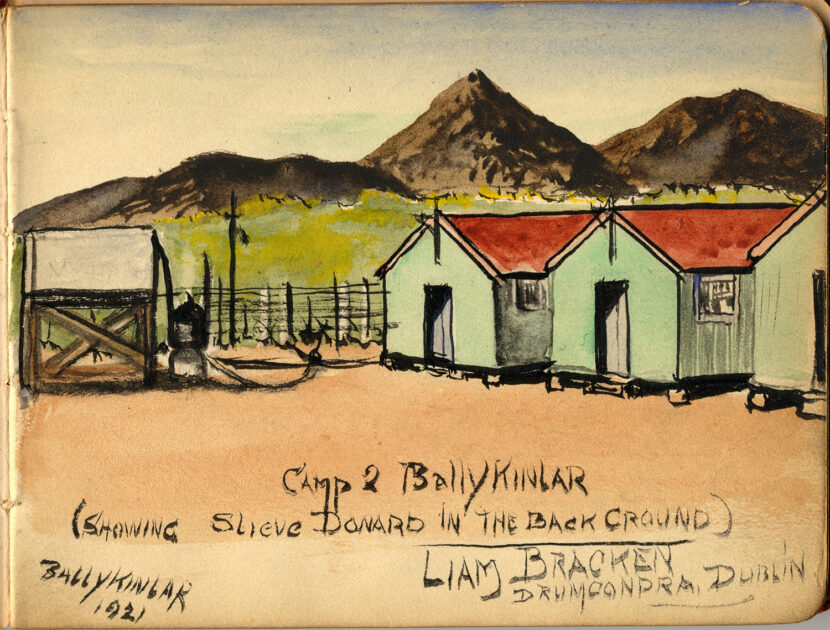
Joe Carr died in 1973 in Dallas, Texas. Sheila Smith Carr died in 1992. My only brother, Michael Denis Carr, died in 1998. None of them ever mentioned the Ballykinlar Book to me.
In December 2002, my sister-in-law Pat brought me a little box of Mike’s papers. She found them in an old garment bag in her attic. They had been there since God-knows-when. And among those papers, I found the Ballykinlar Book.
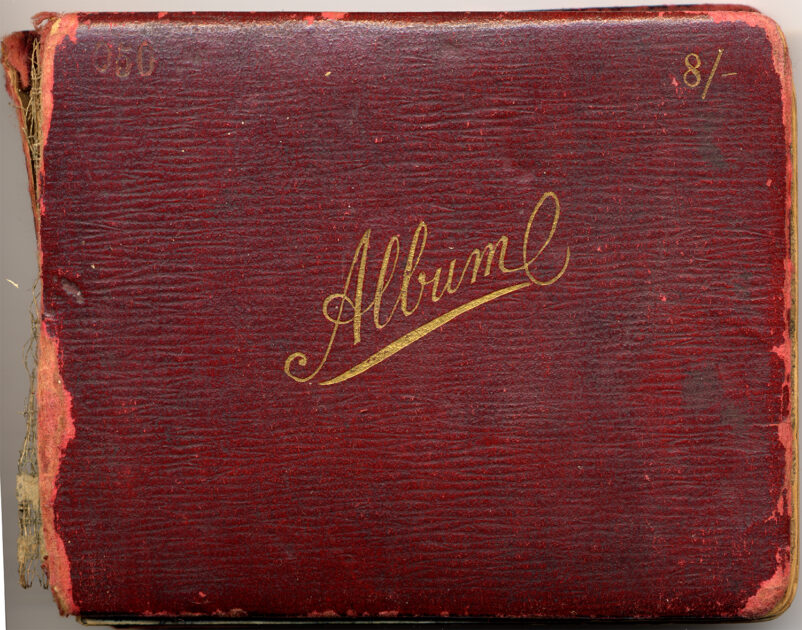
It was instantly evident that this was an historic and genealogical gem. It is a little autograph album, the size of a 4”x 6” photo. It cost eight shillings in 1909 – the sum is stamped in gold or silver on the corner of the cover. A tremendous sum in those days for a book of empty pages, it attests to a level of relative affluence of the original purchaser.
The book originally belonged to my Aunt Monica, Joe’s sister. Four pages are autographed by young women, possibly her school chums, with romantic and feminine drawings, the earliest in 1908. Then it must have been put in a drawer and forgotten until 1921, when she probably visited Joe in Ballykinlar Prison and brought him the book.
Over the period of half a year, he asked fellow prisoners to sign it. I am struck with the level of intelligence, wit and intensity evident in the prisoners’ remarks. They were literate, educated and dedicated men who knew exactly what they were fighting for. A number of inscriptions are in Gaelic, embodying the desire for national identity and separation. I am sad that Joe’s name and thoughts are not found on any of these pages. I like to think his mission was to witness and chronicle a chapter in Irish history. However, the British–Irish among the prisoners posted their names, in Gaelic, as a separate list. Joe’s name is highlighted here. Saranac means “British” in Gaelic, derived from Saxon.
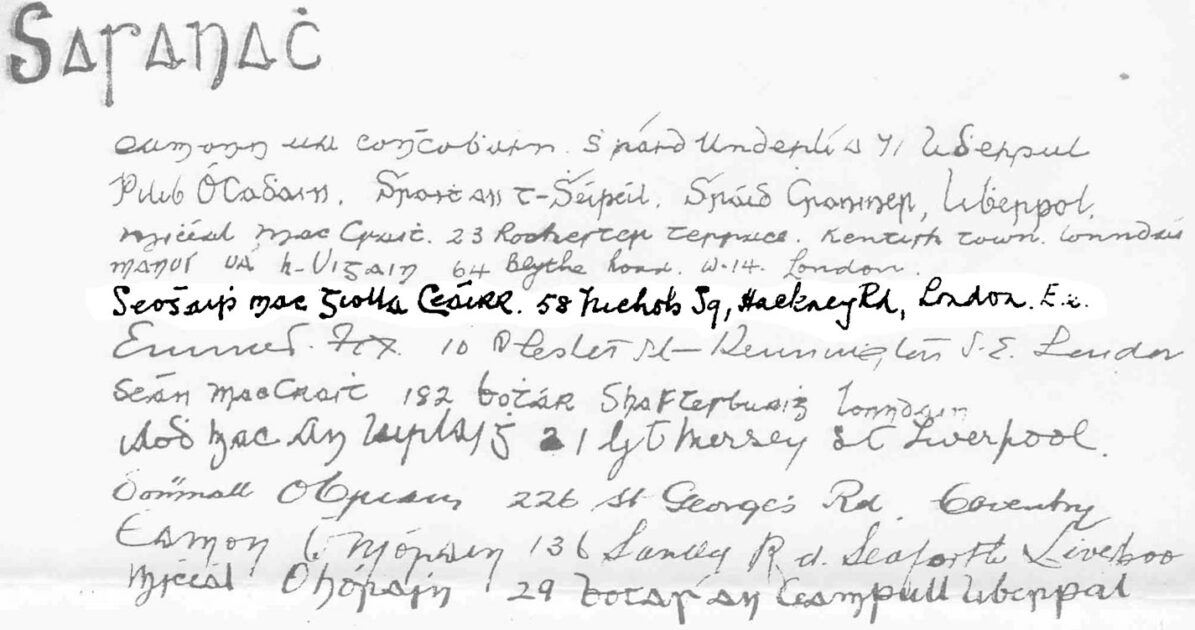
Joe’s name is written Seosamp MacGiolla Ceairr –Joseph, son (Mac) of the followers/clan/tribe (Giolla) of arms/spears (Ceairr), as represented in this cartoon by the man kneeling with a spear. Joe really was a spear carrier, a man of arms. How appropriate.
What a miracle that the Ballykinlar Book survived! More than eighty years had passed since those men had written their thoughts. The Book made at least one, possibly more, transatlantic journeys. It may have passed through Ellis Island. The Book was among the must-have possessions of a family fleeing war in Europe. It had survived a possible torpedo from a German submarine. The Book had suffered the ravages of Texas weather, where attics can regularly reach 150 degrees Fahrenheit.
In March 2003, I took the Ballykinlar Book to Dublin and donated it to the National Library of Ireland. The scanned and transcribed book, in database format, was loaded onto the Irish Genealogy Project’s RootsWeb site, where descendants of the 51 men who signed it can find them. Here is the link: http://irelandgenealogyprojects.rootsweb.ancestry.com/Ballykinlar/doc.htm
I’m always so touched when one of my Irish relatives asks me, “When are ye coming home?”, as if I had never left. By proxy, the Ballykinlar Book celebrated a homecoming in honor of Joe Carr and on behalf of the entire Carr family. There is only one place that it belongs – in the Republic of Ireland that these men fought for.
This is excerpted and condensed from the author’s book, “You Are In Their Image and Likeness,” published in 2011.
